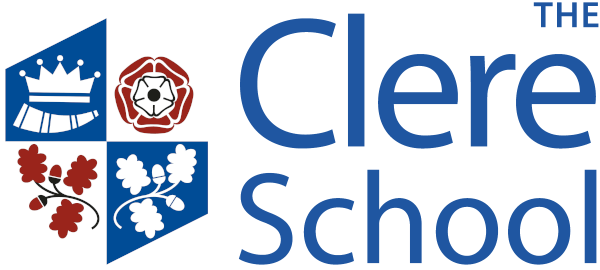About the School Curriculum
At The Clere School we believe that the curriculum is central to the quality of education. We are proud to offer our students a broad, balanced curriculum that is ambitious for all. Every student has the opportunity to learn, develop and practice skills that will prepare them for future careers in a fast-changing world.
Within Key Stage 3 we follow the statutory national curriculum which sets out in programmes of study, subject content for those subjects that should be taught to all students. Students study English, Maths, Science, Art, Computing, Dance, Drama, Design Technology (including Food), Geography, History, MFL, Music, RS and Wellbeing (which incorporates PSHE, Citizenship and RSE).
At Key Stage 4, we continue to offer a broad, balanced and personalised curriculum that allows students to pursue their interests whilst ensuring that their curriculum has enough challenge and rigour to equip them for the future. As students reach the second term of Year 9, they have the opportunity to choose a selection of courses to study in Years 10 and 11, which will complement the core curriculum on offer of English, Maths, Science, Core PE, RS and Wellbeing (PSHE, Citizenship and RSE). Subjects on offer at Key Stage 4 include: Art, Computing, Drama, Design Technology, Geography, History, Hospitality & Catering, Media Studies, MFL, Music, PE, Photography and Sociology.
We teach a curriculum that:
- is rich in knowledge
- promotes flexible thinking
- is informed by cognitive load theory
- does not compromise on the use of disciplinary language
all of which becomes progressively more challenging and more complex throughout students’ secondary school journey.
Our curriculum is cohesive, structured to draw upon and activate prior knowledge, with logically sequenced episodes of new learning that allow students to build schema and accumulate a deep understanding of the subjects they study.
Curriculum design is underpinned by an understanding of the different types of knowledge, the relationships between types of knowledge as well as an understanding of how students learn to support all to access the curriculum effectively and maximise learning opportunities.

